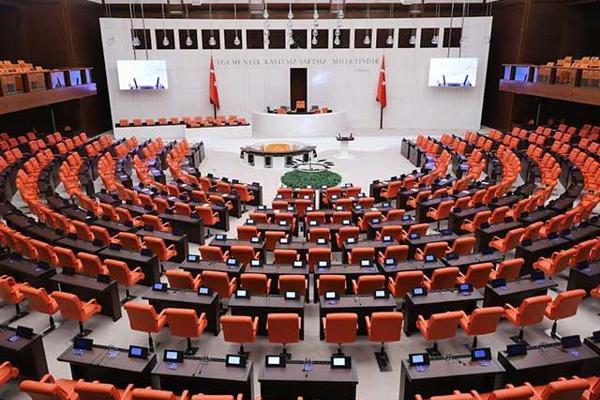Gov’t plans to increase public role in decision making
ANKARA


The work carried out by the presidency to shape the government’s work on the new constitution promises regulations such as allowing the public to participate in the legislative processes with a certain number of signatures.
The outputs of the presidential meetings convened ahead of the constitutional negotiations expected to be on the country’s agenda after the May 14 elections argue that a general ban should not be imposed on the membership of civil servants to political parties.
The move is planned in a bid to “strengthen the right to participation,” which will also prompt measures to ensure that public services are carried out impartially.
If the president and the parliament are in agreement, any issue should be able to be put to a referendum, while the right to demand a referendum should also be given to the public, the preliminary studies promise.
The public should even be allowed to participate in the legislative processes if a certain number of signatures are collected, the meetings deduced, offering “objectionable referendum,” a new implementation that will enable the public to veto some decisions.
In the new constitution, “the preamble, unlike the current one, should be reconsidered in an inclusive, literary and concise manner,” the government plans.
A stance should be taken in this section against tutelage and reference should be made to the founding values of the country, “martyrs for democracy” should be commemorated, a positive language should be used, and an inclusive definition of the Turkish nation should be made, it suggested.
The understanding of “rights and duties” in the current constitution should be abandoned and an arrangement should be made on the axis of “rights and freedoms,” the government officials argued in the meetings.
The public should be given the right to propose constitutional amendments, they suggested.
Upon the criticisms toward the executive presidential government system that it has weakened the parliament, the officials argued that “the parliament was rather strengthened constitutionally.”
Objections to the election of the president with 50 percent plus one vote “mean opposition to social and political legitimacy and are incompatible with democracy,” they also pointed out. In Türkiye, any presidential candidate needs to pass the 50 percent vote threshold to be elected.
